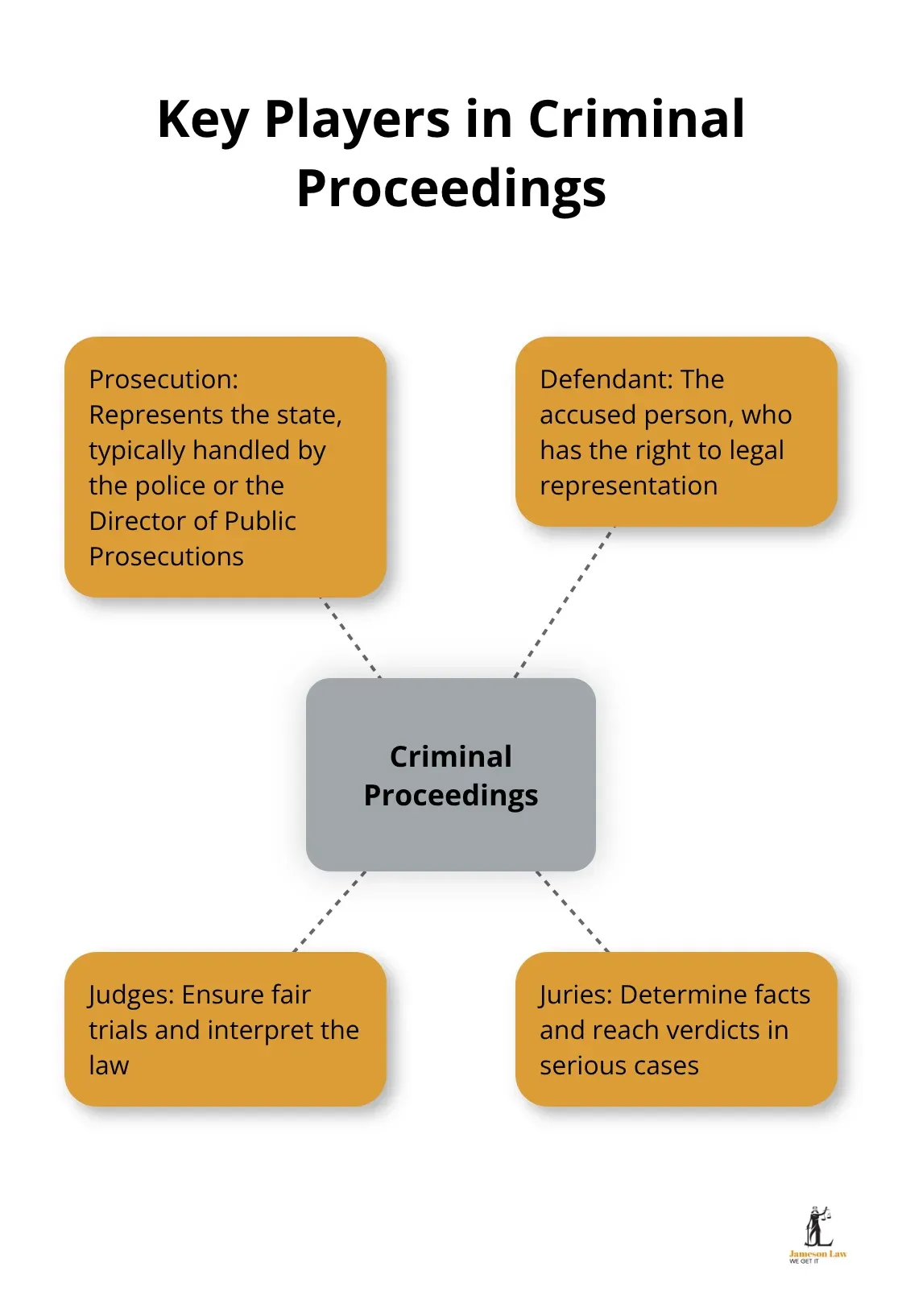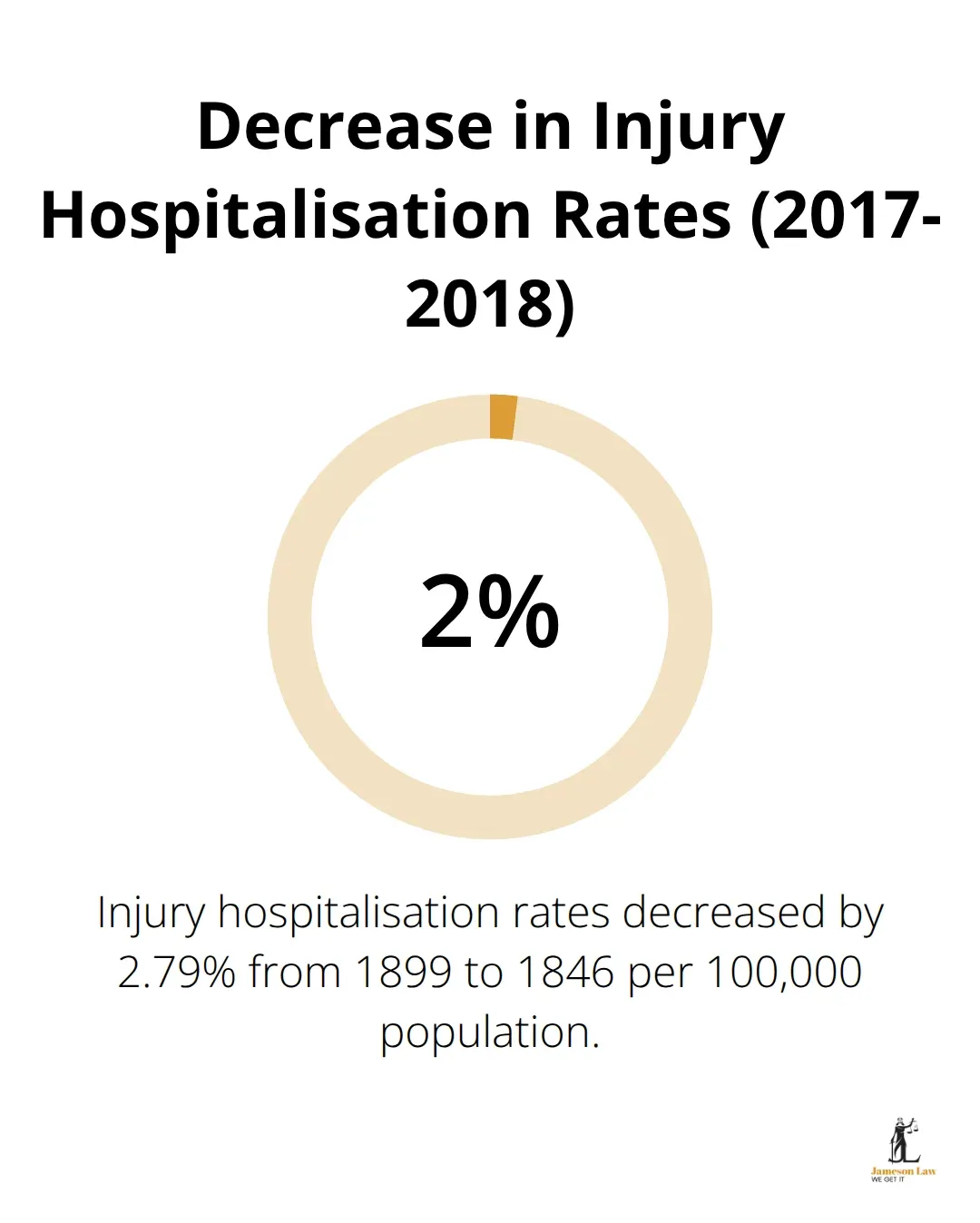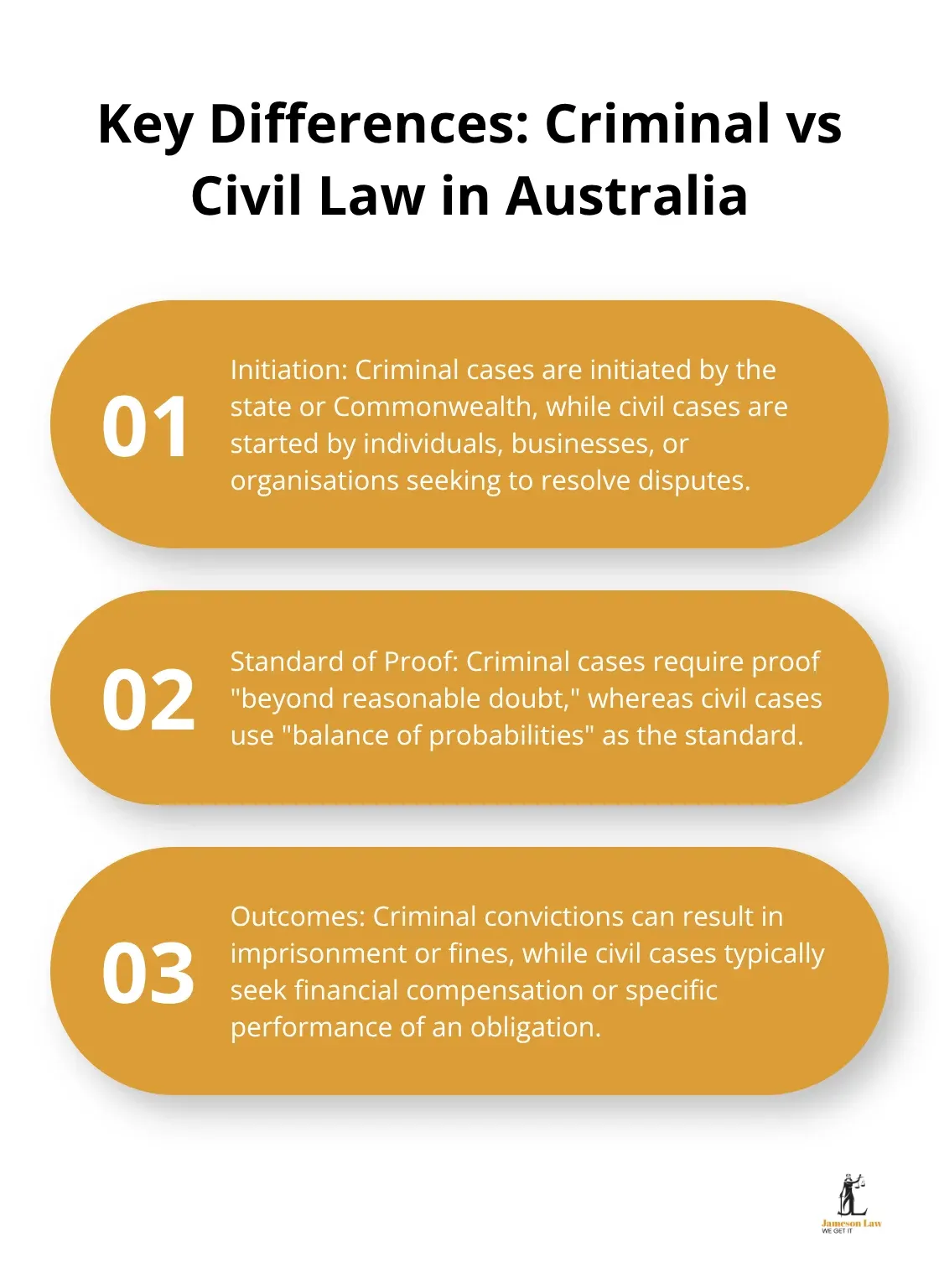At Jameson Law, we often encounter clients grappling with the complexities of the Australian legal system. One common area of confusion is the distinction between criminal and civil law.
Understanding the key differences between criminal versus civil law in Australia is vital for anyone navigating legal matters. This blog post will break down these differences, helping you grasp the fundamentals of both legal domains.
What Is Criminal Law in Australia?
Definition and Purpose
Criminal law in Australia defines what it means to commit crimes. It addresses offences such as murder, assault, theft, drug-related offences, and sexual offences involving children. The primary purpose of criminal law is to punish offenders, deter future crimes, and rehabilitate criminals.
Types of Criminal Offences
Australian criminal offences fall into two main categories:
- Summary offences: Less serious crimes heard in local or magistrates’ courts (e.g., traffic violations, minor theft).
- Indictable offences: More severe crimes tried in higher courts, often with a jury (e.g., murder, sexual assault, large-scale drug trafficking).
Key Players in Criminal Proceedings
Criminal cases involve several important parties:
- Prosecution: Represents the state (typically handled by the police or the Director of Public Prosecutions)
- Defendant: The accused person (has the right to legal representation)
- Judges: Ensure fair trials and interpret the law
- Juries: Determine facts and reach verdicts in serious cases

Burden of Proof
The burden of proof is a fundamental aspect of criminal law in Australia. The prosecution must prove the defendant’s guilt beyond reasonable doubt. This high standard reflects the serious nature of criminal charges and potential consequences for the accused.
The principle of ‘innocent until proven guilty’ underpins the Australian criminal justice system. This means the defendant is not required to prove their innocence; instead, the prosecution must prove guilt.
Legal Representation in Criminal Cases
Given the complexity of criminal law and the potential consequences of a conviction, legal representation is essential. Experienced criminal defence lawyers (such as those at Jameson Law) work to protect clients’ rights and ensure fair trials. They develop strong defence strategies and navigate the intricacies of the criminal justice system.
As we shift our focus to civil law, it’s important to note the stark differences in how these two legal domains operate. While criminal law deals with offences against the state, civil law addresses disputes between individuals or entities. Let’s explore the key aspects of civil law in Australia.
What Is Civil Law in Australia?
Definition and Scope
Civil law in Australia addresses disputes between individuals, businesses, or other entities. Unlike criminal law, which punishes offenders, civil law resolves conflicts and provides remedies for those who have suffered harm or loss. Australia’s legal system includes both written and unwritten constitutions, with constitutional law being either written down in a single document (like in the US and India) or unwritten.
Common Types of Civil Disputes
At Jameson Law, we handle various civil cases, including:
- Contract disputes: These occur when parties disagree over contract terms or performance (e.g., a builder suing a client for unpaid work).
- Personal injury claims: These involve seeking compensation for injuries caused by another party’s negligence. Recent data shows that injury hospitalisation rates decreased from 1899 to 1846 per 100,000 general population from 2017-2018.
- Family law matters: These include divorce proceedings, child custody disputes, and property settlements.
- Property disputes: These can involve disagreements over property boundaries, easements, or landlord-tenant issues.
- Defamation cases: These involve claims that someone’s reputation has been damaged by false statements.

Key Players in Civil Proceedings
Civil cases involve several main parties:
- The plaintiff: The person or entity bringing the claim.
- The defendant: The person or entity being sued.
- Lawyers: Representatives who protect their clients’ interests.
- Judge: The authority who presides over the case and makes decisions on legal matters.
Juries are less common in civil proceedings, with most cases decided by a judge alone.
Burden of Proof in Civil Cases
The burden of proof in civil cases differs significantly from criminal cases. In civil matters, the decision-maker must be satisfied that the allegation has been proven on the balance of probabilities, while criminal matters require a higher standard of proof.
This lower standard reflects the nature of civil disputes, where consequences are typically financial rather than punitive. However, presenting a strong, evidence-based case remains essential to meet this threshold.
Professional legal advice plays a critical role in gathering and presenting compelling evidence to support claims or defend against allegations in civil matters. This evidence might include documents, witness statements, or expert testimony, depending on the case’s nature.
As we move forward, it’s important to highlight the key differences between criminal and civil law. These distinctions shape how cases are handled, the rights of those involved, and the potential outcomes. Let’s explore these differences in detail in the next section.
How Do Criminal and Civil Law Differ in Australia?

Initiation of Legal Proceedings
In criminal cases, the state or Commonwealth starts proceedings against individuals or entities suspected of breaking the law. Police or public prosecutors file charges on behalf of the community. For instance, the Office of the Director of Public Prosecutions (ODPP) has a role in restraining and confiscating proceeds of crime (in conjunction with the Crime and Misconduct Commission) under the Criminal Proceeds Act.
Civil cases are initiated by individuals, businesses, or organisations seeking to resolve disputes or obtain compensation. These cases often involve contract disagreements, property disputes, or personal injury claims.
Potential Outcomes
Criminal convictions can result in severe penalties, including imprisonment, fines, or community service orders. Civil cases typically seek financial compensation or specific performance of an obligation. Outcomes might include damages payments, injunctions, or orders to fulfil contractual duties. Personal injury cases, for example, often result in compensation for injuries and losses.
Standard of Proof
The standard of proof in criminal cases is “beyond reasonable doubt.” This high threshold reflects the serious consequences of a criminal conviction. In a criminal proceeding, the court is not to find the case of the prosecution proven unless it is satisfied that it has been proven beyond reasonable doubt.
In civil matters, the standard is “on the balance of probabilities.” This means the court must be satisfied that it’s more likely than not that the claim is true. While this standard is lower than in criminal cases, presenting a strong, evidence-based case remains important for success.
Rights of the Accused
Criminal defendants have significant protections under Australian law. These include the right to remain silent, the presumption of innocence, and the right to legal representation. The Australian Constitution also guarantees the right to a fair trial by jury for indictable offences.
In civil cases, while parties have the right to legal representation, there’s no presumption of innocence. Both sides must present their case, and failing to provide evidence can negatively impact the outcome.
Appeal Processes
Both criminal and civil cases can be appealed, but the processes differ. In criminal matters, defendants can appeal against conviction or sentence.
Civil appeals typically focus on errors in law or procedure. The appealing party must show that the original decision was incorrect based on the evidence presented or that there was a significant procedural error.
Final Thoughts
Criminal versus civil law in Australia differ significantly in their purpose, processes, and outcomes. Criminal law addresses offences against the state, requires proof beyond reasonable doubt, and can result in imprisonment. Civil law resolves disputes between individuals or entities, uses the balance of probabilities standard, and typically leads to financial remedies.
Understanding these distinctions helps individuals navigate the legal system effectively. The initiation of proceedings, potential consequences, and rights of the accused vary greatly between criminal and civil cases. These differences impact how cases are handled and the strategies employed by legal professionals.
At Jameson Law, we offer expert guidance in both criminal and civil matters. Our experienced team provides tailored support to protect your rights and interests throughout legal proceedings. We strive to achieve the best possible outcomes for our clients, whether they face criminal charges or civil disputes.













